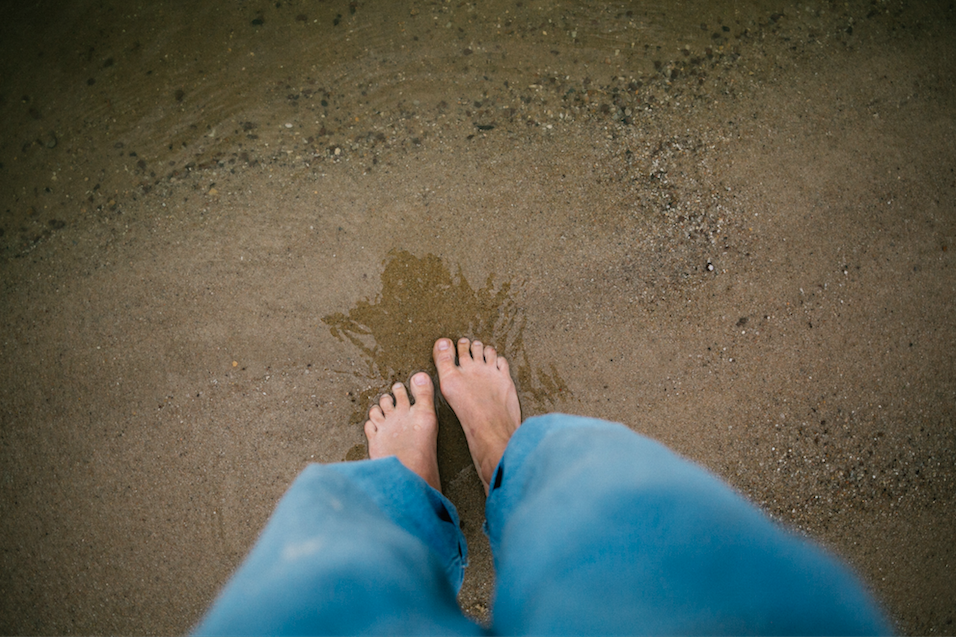
in Choose Hope Today, Forgiveness
Think for a moment about Forgiveness and what it means to you. What are your first impressions? Do certain thoughts arise? Do images of particular people pop in front of your eyes? Most importantly: Was one of the people you?
The trespasses of others come to mind easily, therefore, we tend to think of others first when we think about Forgiveness. We know when we have been wronged, who has wronged us, and if we’re being honest, we know that forgiving others is an important part of healing. The challenge is in realizing that you need to forgive yourself for your own trespasses before you can truly move forward. This is difficult because, to realize that you need to forgive yourself is to admit that you have played a part in the mess you’re in. It’s far easier to cast blame on others, to deflect your own shame, and to simmer in the idea that you’re a victim with no responsibility for your situation. But being accountable for your own part in your pain is crucial to your healing; it is your path to Forgiveness.
Maya Angelou once said, “I did then what I knew how to do. Now that I know better, I do better.” If you have worked through the previous Living Hope Practices of Surrender, Stillness, Grief, Honesty, and Curiosity, this idea should be encouraging to you – you know yourself much better now than you did when you started this process; and now, you can do better. You have asked the hard questions, truths have been revealed about how you got where you are, and you are beginning to live into this new reality.
Friend, take another step into your true narrative. You do not have to stay shackled to your past. You are a new person writing a new story. With kindness and compassion, you must begin to forgive yourself.
It must be noted that, in this instance, when we are talking about forgiving yourself, we are referencing pain that was inflicted on you but that you also consciously or subconsciously augmented by accepting it or participating in it — sometimes referred to as Little-t trauma. It is in the throes of Little-t trauma that we tend to cast blame on others and pull focus away from our own accountability to our pain, keeping us trapped in the struggle.
Understand that part of your Forgiveness journey may involve deep empathy for others. Recognizing the trauma that shaped your offender allows you to connect empathically with their behavior, making them accountable for their actions while simultaneously releasing you from any feelings of blame for those actions. In addition, accepting and having compassion for the dysfunction in another will release your focus on that person and free you to forgive yourself for allowing their trauma to impact you and bleed into your life.
But don’t stop there. Confront the pain that you allowed to grow while in the dysfunction of your situation and confront your own contributions to the pain you brought on others. Forgive yourself for not being true to yourself, for giving into the expectations of others, for hiding your pain in self-destructive behavior. Say it out loud if you need to: I forgive myself for having lived in the wrong narrative.
Please know that this bold Forgiveness takes courage and it takes time. There will be moments where your mind will slip into periods of self-recrimination and judgment as you acknowledge your part in your pain. But as you grow in self-awareness and show yourself compassion, you will begin to shed the pain and the lies that were chaining you to a false narrative.
At Living Hope, Forgiveness is the sixth step on your journey to healing and Hope. Forgiveness is the act of being accountable for your part in the story. By taking into consideration your own contribution to the pain you are experiencing, you will be able to offer compassion to others and, most importantly, to yourself. As you begin to release from the pain, regret, shame, and failure that your struggle has produced, you will be left with an appreciation of what your hurt and struggle will lead you to: freedom.
You will begin the Practice of Forgiveness when you are willing to stop placing blame on yourself and on others, instead having empathy and acceptance for the root cause of your pain, both pain that you have inflicted and pain that you have received. In acknowledging your own need for forgiveness, you will continue your healing and find the release needed to move forward.
You can begin the Practice of Forgiveness now. Take responsibility for your part in your mess. Forgive yourself for allowing someone else’s dysfunction to harm you. Forgive yourself for living in the wrong narrative. Show yourself compassion, and then move forward, walking boldly into your new reality and toward freedom.
Forgive yourself.
